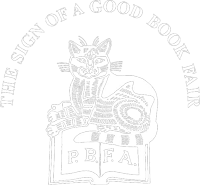
Kipling, Rudyard ~ 2 Vols. : The Irish Guards in the Great War – Edited and Compiled from their Diaries and Papers
First UK printings : Macmillan and Co., Limited, London : 1923
The First UK printings published by Macmillan and Co., Limited, London in 1923. 8vo., 2 vols.; publisher’s red cloth embossed with the regimental badge of the Irish Guards in gilt to the upper boards; lettered in gilt along backstrips; together in the rare brown wrappers, printed in black with publisher’s devices to upper cover and spine; and a list of advertisements for Kipling’s works to the lower panel; priced 40/- net to spine; upper edges gilt; with 4 double-page, and 7 single-page maps by Emery Walker, showing the first and second battalions, respectively, and printed in red and black; The BOOKS are in Very Good++ condition. Clean copies, a little toned to the text block, with some minimal rubbing and bumping to the edges of the cloth boards in places ; previous bookseller description affixed to the ffep of Vol I. The seldom found WRAPPERS are in Very Good++ condition ; chipped to spine ends, with a little loss, but none affecting text; some chips leading to some small closed tears and a little loss to the upper edges in places; spine of Vol II wrapper with a 7cm split along fold, and two tears extending horizontally across the backstrip; unusual, still, in this condition. The wrappers are protected in removable Brodart archival covers. Provenance: with the attractive bookplate of Lucy and Bernard Heinemann to the front paste-downs. First edition, first UK printing, with contemporary insurance policy advertisement bookmark loosely inserted. An extensively researched work, covering the movements and actions of the Irish Guards from their mobilisation (the First Battalion on 4th August 1914, the Second from the 15th July 1915) through to Armistice day. The Irish Guards were one of the first regiments to be mobilised, and they remained on the Western Front for the duration of the war. They took part in one of the bloodiest battles of 1914, the battle of Ypres, as well as the Battle of the Somme, and faced huge casualties throughout the duration of the war. Their motto, Quis Separabit, which appears on the covers of this work, translated from the Latin as "Who shall separate us?", and comes from the Order of St Patrick. Kipling had good reason to focus his attention on this particular regiment. Upon the outbreak of the First World War, the author’s only son John was keen to enlist, and after failing a series of medical examinations due to poor eyesight, it was his father who eventually succeeded in getting him a place, being lifelong friends with Lord Roberts, former commander-in-chief of the British Army and colonel of the Irish Guards. John joined the Irish Guards, and at the battle of Loos was sent into fight two days into the battle in a reinforcement contingent. Missing in action, he was presumed dead, in service to his country, and his body was not formerly identified until 1992. Kipling was devastated by his loss, and, consumed with guilt at his part in arranging his son’s placement. He later wrote in Epitaphs of the War "If any question why we died / Tell them, because our fathers lied." “Recollection fades from men’s minds as common as life closes over them” Kipling writes here, in his introduction. “It is for the sake of these initiated that the compiler has loaded his records with detail and seeming triviality, since in a life where Death ruled every hour, nothing was trivial.” A fascinating historical record, scarce in the jackets, and often regarded as one of the finest examples of regimental history. Collectible
BINDING: Hardcover
CONDITION: Very Good++
JACKET: Good++
£650



